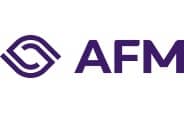
08/04/25
Private equity in auditing industry puts further pressure on balance between commercial and public interest
Audit firms that engage with private equity must focus on the public interest and prioritise the quality of statutory audits. It is important that they maintain safeguards to provide adequate counterpressure to commercial incentives. Data analysis by the Dutch Authority for the Financial Markets (AFM) reveals changes brought about by engagements with private equity. The AFM believes the risks outweigh the opportunities in this situation.
In short
• Auditors fulfil an important public task
• Private equity can further upset the fragile balance between commercial and public interest
• Quality of statutory audits must be guaranteed
Auditors fulfil an important public task
The market share of non-PIE audit firms with private equity investment has grown rapidly to around 30%. The effects of private equity investment therefore merit further examination, especially given the key public task fulfilled by auditors. By auditing annual reports, alongside other reports, and issuing an opinion on them, auditors enhance public trust and instil confidence in society. Commercial incentives can put further pressure on the importance of performing these audits properly. Therefore, it is essential that counterpressure be continuously maintained, both internally by the audit firm and externally by the AFM, for example.Private equity can further upset the fragile balance between commercial and public interest
Private equity offers opportunities, such as economies of scale, new expertise, investment capacity and a stronger competitive position. Yet, it can also carry risks like the desire for rapid growth and/or increased profitability, exit uncertainties, failed leverage strategies and threats to independence and confidentiality. These commercial incentives can place pressure on the ongoing safeguarding of statutory audit quality.Quality of statutory audits must be guaranteed
Audit firms should carefully weigh these opportunities and risks. It is essential, when doing so, that there is adequate counterpressure against the commercial interests of private equity parties to maintain the quality of statutory audits. It is important that audit firms already engaging with private equity maintain safeguards and preconditions to provide adequate counterpressure to commercial incentives. Supervisory boards play an important role in this regard. External pressure, from the AFM for example, also remains necessary, as the Kwartiermakers emphasised in their final report entitled ‘Pressure and counterpressure’. This helps to enhance the quality-oriented culture and quality of statutory audits.Any questions?
If you have any questions, please contact the Business Desk of the AFM, either by email to ondernemersloket@afm.nl or by using the contact form. You can also contact us by phone on Mondays, Wednesdays and Thursdays between 10.00 and 13.00 at 08 00 68 00 68 0 (calls are free of charge).
Explanation visual
In this visual you see the market share of non-PIE firms with private equity investment over the last years. From 11% in 2023 to around 30% in 2025
Tags
Audit firmsContact for this article

Would you like to receive the latest news from AFM?
Subscribe to our newsletter, we will keep you up-to-date.